‘Border killings rooted in discrimination against the marginalised’

Kirity Roy, secretary of Banglar Manabadhikar Suraksha Mancha (MASUM), a rights organisation based in West Bengal, India, discusses the underlying issues behind border killings at the Bangladesh-India border, in an exclusive interview with Naimul Alam Alvi of The Daily Star.
The Border Guard Bangladesh (BGB) and India's Border Security Force (BSF), along with the governments on both sides, have repeatedly pledged to reduce border killings to zero. But this goal remains unmet. Why is it so?
One of the primary reasons behind killings at the Bangladesh-India border is that the border guards of both countries are corrupt. Many BGB and BSF members profit from smuggling—be it human or cattle trafficking, or smuggling of other goods. Smugglers from both sides of the border pay money, and these individuals get their share. That's why they turn a blind eye to these things. In some cases, there is retaliation, which sometimes ends in border killings. But the people who get killed are just carriers; the kingpins remain out of reach.
The Constitution of India clearly says that the state will not discriminate among people, and there will be no discriminatory policies. But it seems that for India, it is accepted that there's a difference between the Bhutan or Nepal border and the Bangladesh border, based on how they are treated. There's no opposition to this state of affairs from the governmental level, and no political parties are concerned about this. So this issue persists.
If you can just take some cows across the border, or throw a sack over the fence, there is money. The border guards will allow it, and even the police will guard you. But we have to understand that these people are not the kingpins of cross-border smuggling—they are just carriers.
Why is there a different attitude towards the Bangladesh-India border?
When the subcontinent became "independent" from the British, without being fully decolonised, they divided two countries according to the two-nation theory—that Hindus and Muslims are different. When India and Pakistan were born, they had a hostile, antagonistic attitude towards each other, which still exists and is even being nurtured by religious political parties. I'm not saying all Hindus or all Muslims are against each other, but there is enough of this kind of attitude between the two groups across the subcontinent. Since 1971, Bangladesh has not been a part of Pakistan, but it seems that this truth has not been processed by many individuals in the Indian foreign ministry, the military, and the BSF. The BSF was formed in 1965 as a result of the Indo-Pak war. So, there is an innate narrative that "Pakistan is our enemy," which has turned into "Muslims are our enemy." This is projected towards Bangladesh as well.
The India that was promised in 1947 is not the same as the India of today. There is now a Hindu nationalist party in power. Similarly, the Bangladesh of 1971, which was secular, is not the same Bangladesh now. The Hindu nationalist party carries resentment for Muslims in general. Incidentally, Bangladesh happens to fall under that criterion.
Why do people cross the border illegally in the first place?
The 1947 Partition of the subcontinent, particularly Bengal, was carried out in a blatantly arbitrary and inconsiderate manner, the repercussions of which are still felt. The partition divided many families: there are families now on both sides of the border who have relatives on the other side. They have been and will continue to try to visit their relatives; you cannot restrict them with passports, visas or barbed-wire fences. There are many who don't have passports, or can't afford to get passports and visas easily. Still, they want to visit their relatives, or their ancestral homes, just like they have been doing for generations since before Partition.
In addition, people migrate in search of work, a better life, and better livelihood options. People have been doing this since before Partition, and even now after the borders have been armed with barbed wire. This kind of migration should be understood and handled considering the region's history and complexity, considering push factors and pull factors. It is the states' responsibility to focus on these factors, instead of taking action against these people.
From what I've seen, people living in the border areas, on both sides, are extremely marginalised. In India, the majority of people living in border regions are Muslims and Hindu Dalits—both religiously and socio-economically marginalised communities in the country. On your side of the border, too, there are Hindu Dalits, or Muslims from poor communities. And in both countries, border areas and these communities are not the focus of development.
For a better living, these marginalised people are forced to seek different ways to make a living. On the other hand, as I have said, smuggling is allowed and supported by different parts of the system—local politicians, government figures, and border guards. So, smuggling has become an attainable opportunity for these people. If you can just take some cows across the border, or throw a sack over the fence, there is money. The border guards will allow it, and even the police will guard you. But we have to understand that these people are not the kingpins of cross-border smuggling—they are just carriers.
You've commented on one of our reports that these are "systematic killings." Can you elaborate?
The BSF has firearms, but Indian law doesn't allow using firearms just because you have them. Still, they are using it against people crossing the border, and nobody's actually stopping them. Their primary argument for this is that they act in self-defence. More often than not, these stories of self-defence are found to be fabricated. It's true that in some cases the smugglers do attack the BSF. But in most cases, people who are carrying cows, sugar or gold across the border are not armed. Nevertheless, they are shot at.
On the other hand, our state police, local politicians, and BSF personnel get their share from the smugglers. So, this smuggling is supported by bigger players, but the people who carry the goods are actually victims.
Under criminal law, this migration may be considered a crime, but the fundamental human need to survive transcends such laws. The issue cannot be effectively solved with legislation like the Foreigners' Act or the Entry Act. Similarly, threats of imprisonment, and use of lethal weapons are inhumane and ineffective. When a state only considers its political stance and doesn't prioritise the issues and benefits of its citizens, it enables negative impacts on people.
The justice delivery systems in both countries are still not modern. The British left decades ago, but we have not changed many colonial rules, systems and approaches to justice. The Indian Penal Code and the Police Regulations, Bengal have their origins in colonial rule. Your Police Act, too, has its roots there. We have our independence, but our judiciary system, law enforcement are not free, and we are not free from the colonial hangover.
How is this system affecting people in terms of human rights?
The focus of this conversation is on border killings and inhumane behaviour towards marginalised people in border areas, but people are treated badly in many ways. For instance, look at the prisons—there are many foreign captives in jankhalash cases. Among them, many were supposed to be freed and returned to their country many years ago. Many have been through trial, and the court has released them. But somehow their verification issued by the country of origin has not come yet. Why does it take months, and even years to complete such menial work? Why is it not a priority, and solved in time so that these people do not have to remain in jail even after they have served their sentences, or have been released by the court? This is the result of the judiciary system, government, administration, police, home department, and foreign department all being insensitive and inhumane towards people. They still have that colonial mindset and colonial structure. Even if we have laws that ensure equality and do not allow discrimination towards people, nothing will change until we change this mindset.
There are even international laws that ensure human rights for all. There are different declarations, and statements to ensure human rights. But these are just not implemented. Bangladesh has signed many international treaties which will support these marginalised people and their human rights. However, India has not signed many of them. Without working for all of the people, how can we consider the country truly democratic?
What can we do to improve the situation?
We, like many human rights organisations on both sides of the border, are trying to reach the victims and support them in their legal battles, or getting treatment. We try to collect information and facts from different sources, analyse them and present them to the public and to civil society. We try to advocate for governance reforms in the criminal justice system to make it more humane. We try to work for the comprehensive implementation of what is in the constitution—freedom and equality.
Unfortunately, the governments in both countries consider anyone opposing any of their actions as their enemy. Human rights activists, who demand justice for the people, are treated as enemies of the state and are thrown in jail. If that is the case, if the governments do not want to change, how can you make any reform? We cannot reform law enforcement, the justice system or the governance system until the government is onboard. Until it shows good intentions, this fight for human rights has to continue.
Follow The Daily Star Opinion on Facebook for the latest opinions, commentaries and analyses by experts and professionals. To contribute your article or letter to The Daily Star Opinion, see our guidelines for submission.

 For all latest news, follow The Daily Star's Google News channel.
For all latest news, follow The Daily Star's Google News channel. 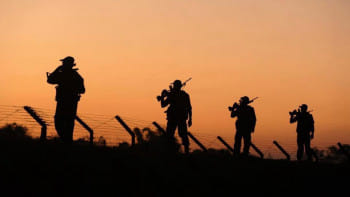
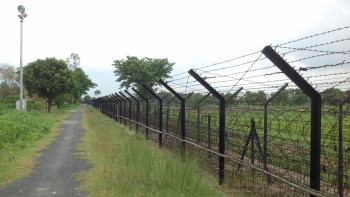


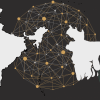
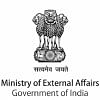

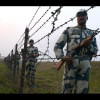



Comments